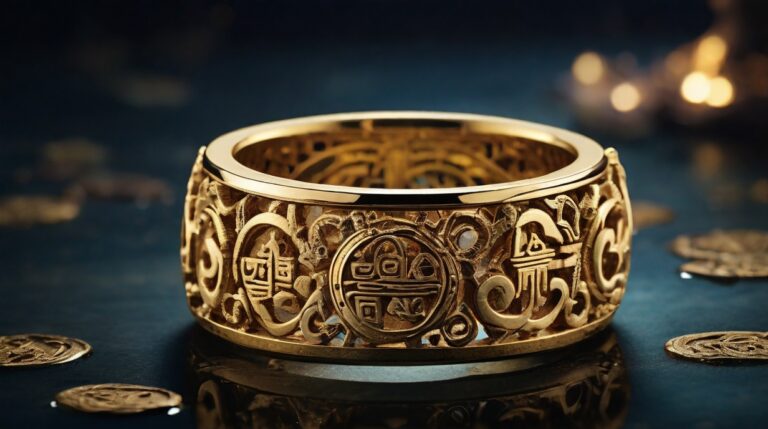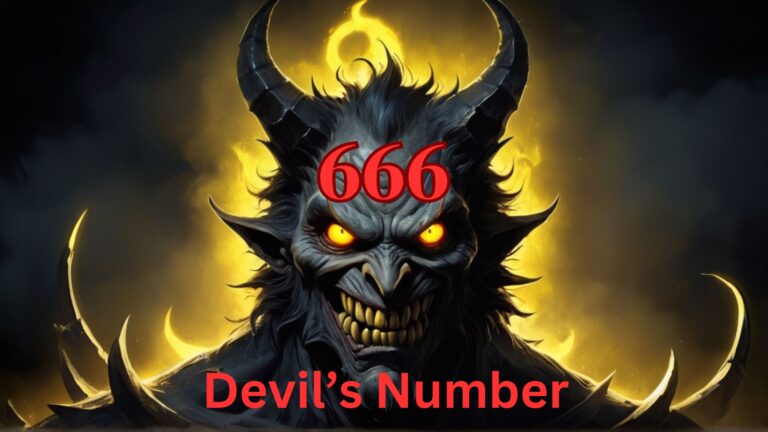Dream Insight: Biblical Meaning of Cutting Hair
Have you ever had a dream that left you with a lingering feeling in your heart? A dream that seemed to hold a deeper significance, as if it was trying to convey a message from beyond the realms of your unconscious mind? I recently had one of those dreams, a dream about cutting hair.
As I woke up, the images of scissors snipping through my hair remained vivid in my mind, prompting me to delve into the biblical meaning of cutting hair in dreams.
Key Takeaways:
- The act of cutting hair in dreams often signifies a desire for change and personal transformation.
- Hair holds significant symbolic meaning, representing strength, identity, and personal growth.
- Understanding the spiritual significance of cutting hair involves exploring cultural interpretations and the symbolism associated with this act.
- Through cutting hair, individuals can experience release, renewal, sacrifice, and surrender.
- Cutting hair serves as a spiritual metaphor for transformation and a fresh start.
Biblical Meaning of Cutting Hair in Dreams

In dreams, the biblical meaning of cutting hair often symbolizes a significant transition or renewal in one’s spiritual journey. Throughout the Bible, hair is often associated with strength, identity, and consecration. The act of cutting hair can represent a shedding of the old self and a preparation for a new chapter or calling.
In the Old Testament, instances of cutting hair, such as Samson’s loss of strength when his hair was cut by Delilah, illustrate the symbolic importance of hair in biblical narratives. Similarly, the Nazirite vow required individuals to refrain from cutting their hair as a sign of dedication to God.
Dreams about cutting hair may signify a desire for spiritual purification, a willingness to let go of past burdens or sins, or a readiness to embrace a new phase of spiritual growth and transformation. They invite individuals to reflect on their identity, values, and relationship with the divine, prompting introspection and renewal.
While dream interpretation is subjective and may vary depending on personal beliefs and experiences, the biblical meaning of cutting hair in dreams encourages individuals to pay attention to the spiritual symbolism and significance behind the imagery. It invites them to seek guidance and discernment in deciphering the message of the dream and discerning God’s direction for their lives.
The Symbolism of Hair in Dreams
The symbolism of hair in dreams holds significant cultural, spiritual, biblical and psychological meaning. Across various cultures, hair has been associated with strength, power, and vitality. In dreams, it often represents one’s identity, self-image, and personal growth.
Understanding the Act of Cutting Hair
When exploring the spiritual and symbolic significance of cutting hair in dreams, it is essential to understand the act of cutting itself. This involves considering the various cultural interpretations, the symbolism associated with hair cutting, and the spiritual significance of this action.
Spiritual Significance in Cutting Hair

Exploring the act of cutting hair reveals profound spiritual significance, encompassing themes of release, renewal, sacrifice, surrender, transformation, and identity across diverse cultures and belief systems.
The act of cutting hair symbolizes a release of negative energy or past experiences, signifying a fresh start or renewal. It represents a letting go of attachments or ego to undergo a spiritual transformation through surrender and sacrifice.
By cutting hair, individuals open themselves up to a new chapter in their lives, shedding old patterns and embracing change. It serves as a powerful metaphor for the release of inner burdens and the renewal of the soul.
In various spiritual traditions, cutting hair is seen as a form of surrender, where one relinquishes control and submits to a higher power. The act represents a willingness to let go of what no longer serves and to embrace a deeper spiritual connection.
Moreover, cutting hair can also be seen as a sacrificial offering to honor one’s spiritual journey. It signifies a willingness to make sacrifices, whether material or symbolic, in order to grow spiritually and align with one’s true self.
The spiritual significance of cutting hair extends beyond physical appearance, intertwining with the core essence of the individual and their connection to the divine. It is a transformative act that allows for the release of negative energy, a rejuvenation of the spirit, and an invitation for personal growth and spiritual evolution.
Cultural Interpretations of Cutting
In different cultures, cutting hair holds diverse perspectives and beliefs, reflecting unique traditions and values. The significance of this act varies, symbolizing a fresh start, a rite of passage, or both.
In some cultures, cutting hair represents a new beginning, a way to leave behind the old and embrace change. It signifies a renewed sense of self and a shedding of the past, evoking feelings of rejuvenation and transformation.
For many cultures, cutting hair is deeply rooted in the rituals of life transitions. It marks significant milestones such as reaching adulthood, marriage, or mourning the loss of a loved one. This act of cutting symbolizes the severance of connections or the ending of a phase of life, and often brings forth emotions of nostalgia and longing.
The cultural interpretations of cutting hair illustrate the importance of hair as a symbol and the impact it has on individuals and communities. It serves as a powerful expression of identity, personal growth, and societal values.
The Significance of Cutting Hair as a Rite of Passage
In many cultures, cutting hair is seen as a deeply symbolic rite of passage. It marks the transition from one life stage to another, signaling the individual’s readiness to take on new responsibilities and roles.
During these rituals, hair is often seen as a representation of strength and vitality. Cutting it serves as a tangible action to let go of the old and make way for the new. It is a symbolic act of releasing attachments, leaving behind childhood or previous social roles, and embracing maturity or a new chapter in life.
These cultural interpretations of cutting hair exemplify the importance of this act in shaping personal and communal narratives, reinforcing the significance of hair as a vessel of cultural identity and transformation.
Hair Cutting as a Spiritual Metaphor
Hair cutting holds significant symbolic meaning in various spiritual traditions. It represents a transformative act that goes beyond mere physical alteration. This spiritual metaphor is often associated with shedding old energy, releasing emotional baggage, and embracing renewal.
Understanding the symbolism in hair cutting provides insight into the profound spiritual journey that can occur through this seemingly simple act. Whether it is in dreams or religious rituals involving cutting hair, the act of cutting hair holds deep spiritual significance.
Spiritual Transformation Through Cutting
Cutting hair serves as a spiritual metaphor for transformation, embodying the symbolic themes of renewal, surrender, and divine connection across various cultural and religious contexts. Through the act of cutting hair, one can experience a profound shedding of old beliefs, habits, and energy, allowing for spiritual growth and a fresh start.
Scenario: Repentance
Dreams of cutting hair can hold a profound biblical meaning related to repentance. It symbolizes a desire to turn away from past mistakes and start anew, signifying a clean slate in your spiritual or moral life.
The act of cutting hair in dreams reflects a deep longing for personal transformation and a renewed connection with one’s beliefs and values. It signifies a willingness to let go of old ways and embrace a path of repentance, forgiveness, and spiritual growth.
Just as the physical act of cutting hair involves the shedding of old strands, the symbolism of cutting hair in dreams emphasizes a conscious decision to release negativity, past behaviors, and patterns that no longer serve your higher self.
This powerful dream experience serves as a gentle reminder to reflect on your actions, make amends, and start afresh. It highlights the importance of repentance and the opportunity for personal redemption and growth.
Scenario: Loss of Strength
Have you ever had a dream where you found yourself cutting your hair and felt as if your strength and vitality were being drained away? This dream scenario holds significant symbolism, reflecting fears or anxieties about losing control or power in a specific aspect of your life. Interestingly, this dream mirrors the biblical story of Samson, where his extraordinary strength was linked to his uncut hair.
In the biblical context, cutting Samson’s hair by the deceitful Delilah resulted in the loss of his strength and ultimately his downfall. Therefore, dreaming of cutting hair and experiencing a sense of losing strength can be a metaphorical representation of similar vulnerabilities or insecurities in your waking life.
This dream scenario could potentially highlight concerns about relinquishing control or experiencing a loss of power. It may reflect a need to reassess your current circumstances and regain a sense of inner strength and resilience. Consider exploring the areas of your life where you feel the need for more control or where you fear a loss of power. This self-reflection can provide valuable insights into your subconscious thoughts and emotions.
Scenario: Embracing Change
Dreaming of cutting hair can hold a profound biblical meaning related to embracing change. It symbolizes a readiness to adapt to new circumstances or phases in life, highlighting personal growth and evolution. When we dream of cutting our hair, we are often signaling an acceptance of the need for change and a willingness to let go of old patterns, habits, or perspectives that may no longer serve us.
Scenario: Expression of Freedom
Have you ever had a dream where you found yourself cutting your own hair? This seemingly mundane act can hold profound symbolism, especially when it comes to expressing freedom and rebelling against societal norms. In biblical meaning of cutting hair in dreams, such an act can signify a powerful desire to break free from the constraints of tradition and embrace individuality.
Symbolically, cutting hair represents a bold act of rebellion or freedom. It is a visual representation of shedding old beliefs, expectations, and limitations, allowing for personal growth and self-expression. Just as a bird spreads its wings to soar through the sky, cutting hair in dreams can be an empowering metaphor for asserting one’s own unique identity and rejecting societal pressures.
By cutting their hair, individuals in dreams might be subconsciously seeking to challenge the status quo, to step outside the confines of what is considered acceptable or normal in search of liberation and authenticity. The act of cutting represents a declaration of independence, an assertion of personal agency, and a desire to live life on one’s own terms.
Benjamin Foster is an author renowned for his profound dedication to Christian teachings and values. Benjamin has dedicated his life to traveling across the globe, sharing his deep understanding and interpretations of biblical scriptures. His approach is unique as he seamlessly blends theological insights with everyday life experiences, making his teachings accessible and relatable to people from diverse backgrounds.
As an author, Benjamin has penned several influential books that delve into Christian ethics, faith, and spirituality.
His seminars and workshops are highly sought after for their ability to inspire and transform, guiding individuals towards a more fulfilling spiritual path.
Offstage, Benjamin is known for his humility and approachability, often engaging in one-on-one conversations with his followers. His passion for gardening reflects his belief in nurturing growth and beauty in all aspects of life.





